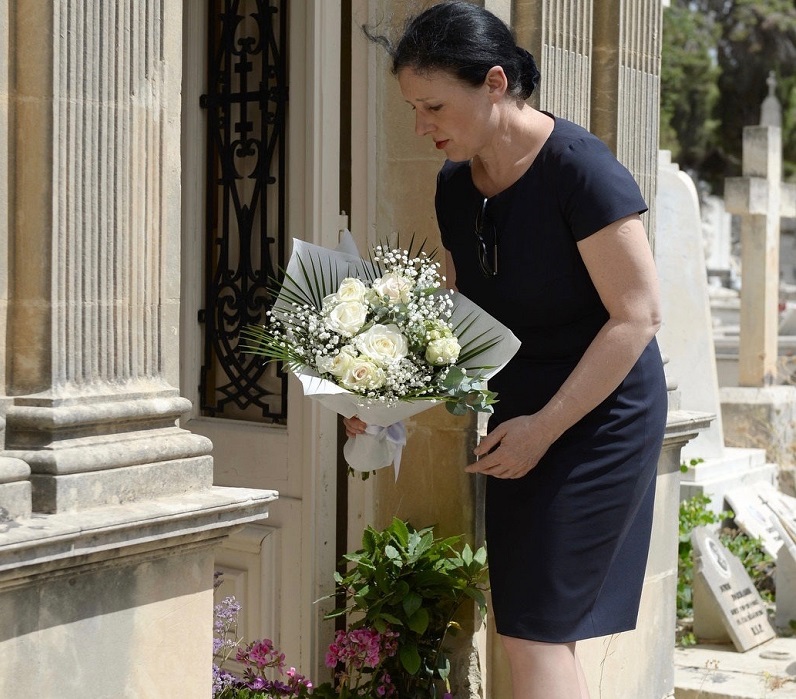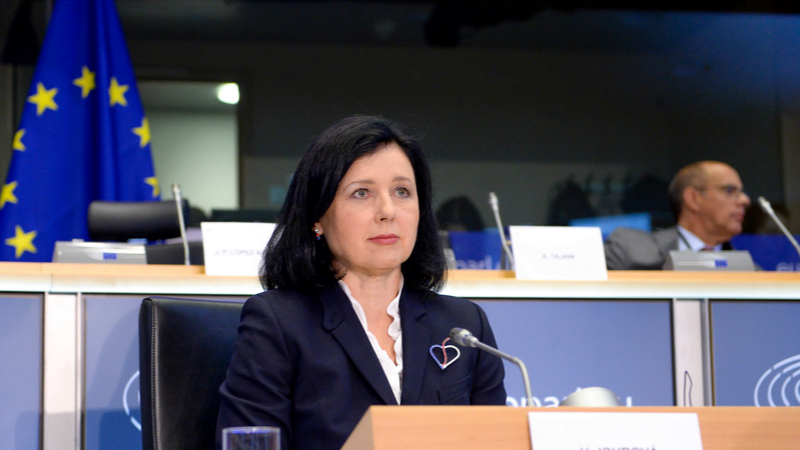The protection of journalists who are under threat, offering them legal aid and defending rule of law and media freedom were among the commitments made by the European vice president-designate for values and transparency Věra Jourová during her hearing on Monday.
She reiterated her promise to the mother of murdered journalist Daphne Caruana Galizia to scrutinise the investigation into her death and the promise she made to her son to better protect journalists.
“These promises are very strong commitments. I am happy to do more to keep these promises,” Jourová told MEPs.
In an interview published by The Shift last year, Jourová said there must be no impunity for those who ordered the killings of Caruana Galizia and Polish journalist Jàn Kuciak and his girlfriend Martina Kusnirova. She paid tribute to the work of Europe’s press freedom community. During her visit to Malta, she had also visited Caruana Galizia’s grave.
During her introductory speech to MEPs on Monday Jourová said her portfolio, which is new, was “about Europe’s soul and the challenges that Europe is facing, internally and externally”. She said she would “try to build bridges across the EU based on our common values”.
Legal aid should be provided to journalists in case of legal harassment, abuse of litigation and EU funds could be used for that. “We definitely must do more” on media freedom and pluralism, Jourová said.

EU Commissioner Vera Jourova lays flowers at the grave of murdered journalist Daphne Caruana Galizia in Marsa, Malta on June 15, 2018. Photo: EU Commission
She pointed out that the EU does not have the legislative tools to protect journalists who are under threat by their own government and expressed her concern that journalists were being attacked by politicians in EU member states.
“We should continue funding independent projects monitoring media pluralism, map media freedom, and support journalists whose safety is under threat,” Jourová added.
Potential measures mentioned by the vice president-designate included anti-censorship legislation, as well as legal and financial aid for those facing rule of law violations.
Her aim, she said, was to “make Europe more democratic and transparent” and “more resilient to threats, including digital ones” Europe must be “more capable to defend values”.
When asked about Malta’s cash-for-passports scheme, Jourová had harsh words. “I agree that it is time to ban these schemes… Unfortunately we do not have the legal competence to do that. What we can do is pass legislation to make things more transparent”
Jourová had always criticised Malta’s golden passports scheme, saying that the European Commission had never endorsed it despite this being one of the main justifications used by the Maltese government and those it partners with to quell complaints on the sale of citizenship.
She said she would bring her own style of leadership to the role – especially when it came to rule of law – after picking up the mantle from current commission vice-president Frans Timmerman.
“I admired what he did and achieved, it was not easy. To defend the rule of law and democracy is not a popular job to do. I will mobilise all my knowledge and experience, also in the region where we have problems, I will be firm on the principle.”
She committed to working with prospective justice commissioner Didier Reynders for an annual monitoring system of rule of law in all EU member states. She said linking it to EU funds was not aimed at sanctioning the beneficiaries but to make it “less easy” for governments.
Looking into corruption in a “systematic manner” will also form part of the annual rule of law review, .Jourová added. She referred to the Article 7 sanctioning procedure against Hungary and Poland, which she said were working.
“When using all the tools, in a fair way, we can achieve progress,” she said, referring to the political perception that Article 7 and other tools have been misused for political purposes by the EU.
On democracy, Jourová spoke of her support for enhancing European electoral processes, for example by revisiting the Spitzenkandidaten process and transnational lists.












